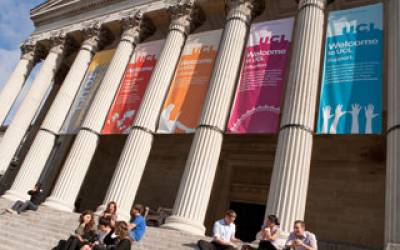E-mail: p.burnham@ucl.ac.uk
PhD, Social Anthropology
University of California Los Angeles, 1972
Emeritus Professor of Anthropology, UCL
Some Publications Relevant to HERG
2000 “Whose Forest? Whose Myth? - Conceptualisations of Community Forests in Cameroon”. In Allen Abramson & Dimitrios Theodossopoulos (eds.) Land, Law and Environment: Mythical Land, Legal Boundaries. London: Pluto Press, pp. 31-58.
2004 (with Monica Graziani) “Legal Pluralism in the Rain Forests of Southeastern Cameroon”. In K. Homewood (ed.) Rural Resources & Local Livelihoods in Africa. Oxford: James Currey, pp. 177-197.
2008 (with Ruth Malleson et. al.) “A Methodology for Assessing Rural Livelihood Strategies in West/Central Africa: Lessons from the Field”. Ecological and Environmental Anthropology. Vol. 41, No. 1, pp. 1-12.
2012 "Climate Change and Forest Conservation: a REDD Flag for Central African Forest People?". In A. Peter Castro, Dan Taylor and David W. Brokensha (eds.) Climate Change and Threatened Communities: Vulnerability, Capacity and Action. Bourton-on-Dunsmore: Practical Action Publishing, pp. 15-27.
2016 (with José-María Muñoz) "Subcontracting as Corporate Social Responsibility in the Chad-Cameroon Pipeline Project". In Catherine Dolan and Dinah Rajak (eds.) An Anthropology of Corporate Social Responsibility. Oxford: Berghahn Books.
General Interests
- Comparative ethnographic and historical studies of African societies
- Social ecology of swidden farmers and pastoralists
- Cultural and institutional factors affecting social and economic development
- Inter-ethnic political relations
Areas of Recent Focus
Growing out of my long-term work on the cultural and institutional context of rainforest conservation in Cameroon, including advisory work for the British government's forestry research programme, I have recently been focusing on REDD (reducing emissions from deforestation and degradation) and PES (payment for ecological services) initiatives promoted by international organisations such as the World Bank and by various national governments.
Another topic of recent interest has been the concept of corporate social responsibility, particularly as it is relevant to large scale infrastructural development projects in Africa. This interest derives from my experience of work as a socio-economic impact assessment consultant for the Chad-Cameroon pipeline project, as well as my research on the informal business sector in Cameroon.
 Close
Close



